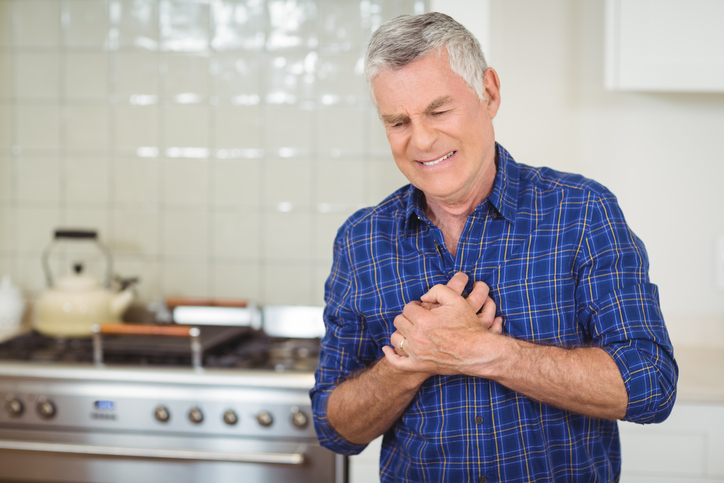
Since the stores are overflowing with heart-shaped everything in honor of Valentine’s Day, it is the perfect reminder for each of us to take care of our hearts, and in particular, to be able to detect the indicators of a heart attack and to know precisely what to do if we believe a senior loved one is experiencing one. Even if you’ve previously educated yourself on these warning signs, it’s always a good idea to take time for a quick refresher.
At Compassionate Nursing Services, the top St. Louis home care agency, our senior care professionals are always on hand to share helpful resources such as these to keep seniors safe and well:
Heart Attack Symptoms
Obtain immediate medical attention if your senior loved one complains of the following:
- Chest discomfort or pain. This can come on all of a sudden and intensely, or involve a slower, more gradual progression. Many heart attack patients identify the feeling as a tightening up or squeezing feeling that usually lasts a few minutes or more, or which recedes and then returns.
- Nausea/vomiting. Nauseous feelings can also be coupled with lightheadedness, dizziness, and/or breaking out in a cold sweat.
- Upper body pain. Pain may radiate down the back, in one or both arms, in the stomach, and sometimes even in the neck and jaw.
It’s important to note as well that women and men sometimes experience diverse heart attack indicators. Men are more susceptible to suffer from only chest pain and discomfort, while women tend to suffer from the other common symptoms outlined above.
Nieca Goldberg, M.D., medical director for the Joan H. Tisch Center for Women’s Health at NYU’s Langone Medical Center shares, “Although men and women can experience chest pressure that feels like an elephant sitting across the chest, women can experience a heart attack without chest pressure. Instead, they may experience shortness of breath, pressure or pain in the lower chest or upper abdomen, dizziness, lightheadedness or fainting, upper back pressure or extreme fatigue.”
What to Do if a Heart Attack Is Suspected
Time is vital in getting proper treatment during and after a heart attack. It’s always preferred to call 911 to provide quicker transportation to the hospital and to allow EMS workers to provide treatment along the way.
Compassionate Nursing Services can help in a variety of ways with keeping older adults healthy and well. By partnering with our top St. Louis home care agency, a caregiver is available to keep an eye out for red flags of a heart attack or other health concern and to seek help immediately. Our in-home care services also include preparation of healthy and balanced meals, assisting with personal care and ambulation to help reduce the risk of falls, cheerful companionship, and many other services to improve health and wellbeing. Contact us at 314-432-4312 to take the first step in helping your senior loved one live a better quality of life.
